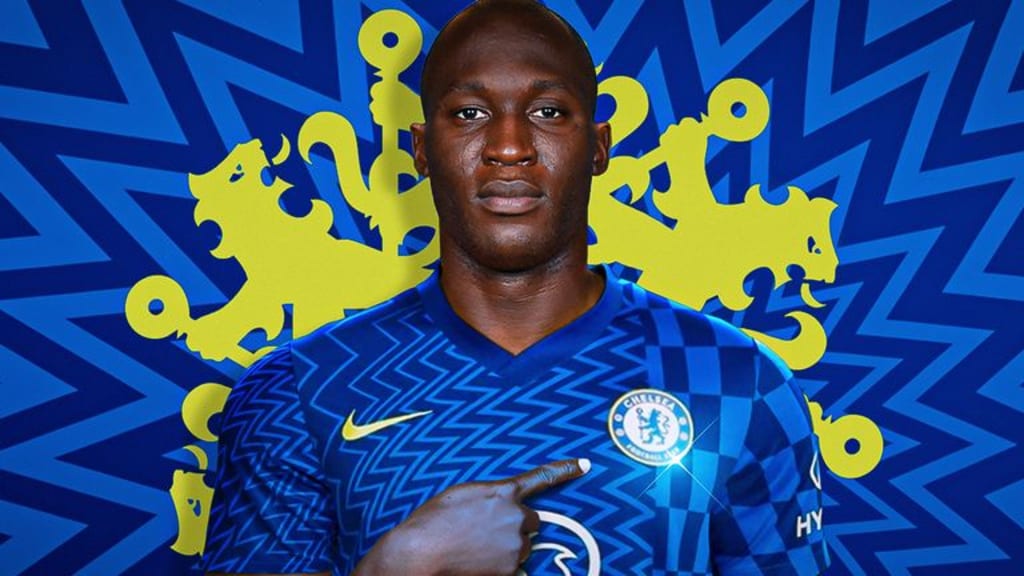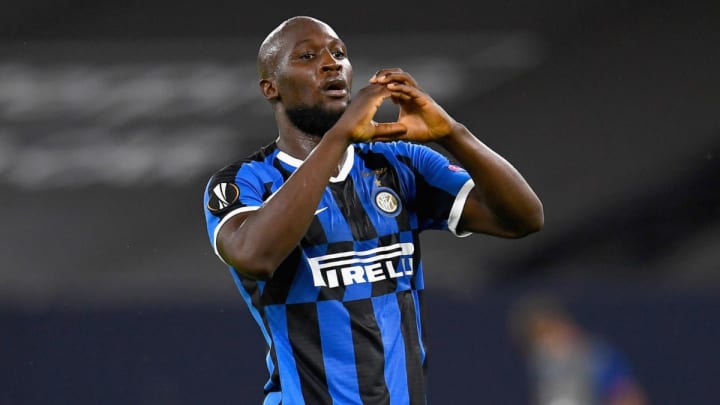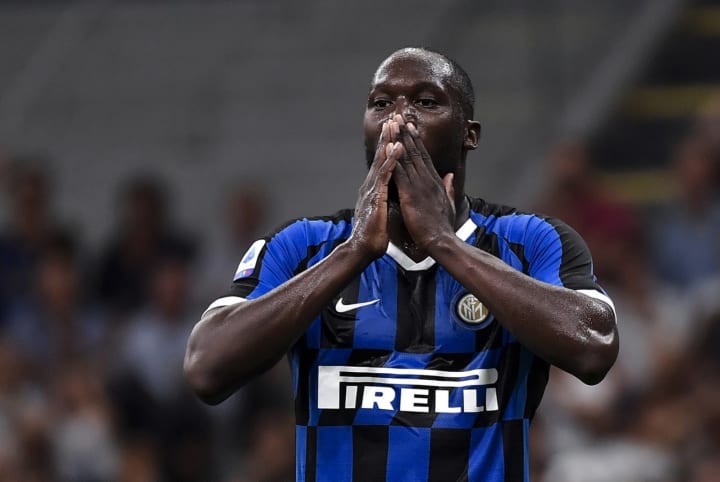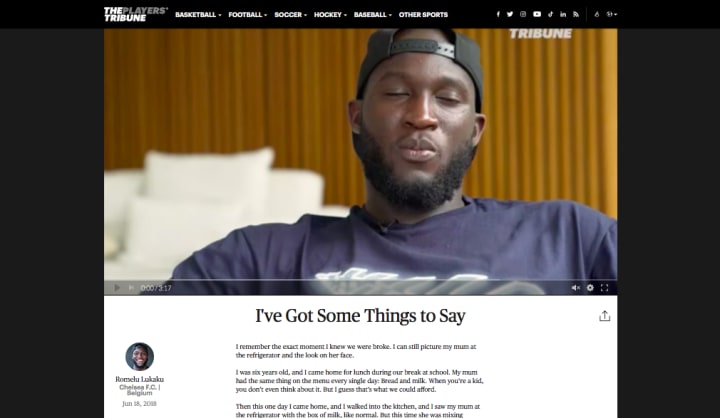The Life and Times of Romelu Lukaku
The personal story of the Premier League’s most expensive signing of the season is more interesting than any his stats and scoring records.

Romelu Menama Lukaku Bolingoli, aka Romelu Lukaku, was born in 1993 in Antwerp, Belgium to parents of Congolese descent, and when he played his first game for a senior club for Anderlecht at age 16 in the Belgian Pro League there was little sign that he would one day move to Chelsea Football Club in Kensington, London for a club-record £97.5 million ($135m USD).
They say the hardest thing to do in professional soccer is score goals, which is why strikers get the big money — and Lukaku has proven to be one of the world’s most prodigious and high-scoring strikers in recent years.
He plays his soccer for the national team of Belgium, until recently ranked the No. 1 team in the world by the game’s governing body FIFA, and last year proved instrumental in Italian side Inter Milan’s winning Italy’s Serie A title under coach Antonio Conte, who spotted him earlier in his playing career with the English sides Everton, West Bromwich Albion and Manchester United.
Irony: His English career was stop-and-start, and largely ineffectual. He didn’t seem to fit in; there were allegations that key management decisions were tainted by racism, and — irony of ironies — a brief stint in 2011 with Chelsea, which came to nothing, would hasten his transfer to Italy, only to return several years later a changed player and a changed man.
Oh, and Chelsea in 2021 have paid 10 times more to get him back than what they sold him for 10 years earlier.
Welcome to the crazy, topsy turvy world of European major league soccer, where Russian oligarchs, Arab sheikhs and global petro-states — so-called “sovereign wealth funds” — have more money than what they know to do with, and no price is too high if it means winning a high-profile European title, and the bragging rights that come with that.
Lukaku is Belgium’s all-time top goal scorer . He scored 44 goals in 63 games in Milan, which may not sound like much until you factor in the fact that goal-scoring in a game noted more for 0-0 draws than 6-5 shootouts is hard to come by. Italy is reputed to be the toughest league to score goals in, owing to Italians’ propensity for valuing defense over offense, which suggests Lukaku could prove to be the difference between Chelsea finishing second or third and winning the Premier League title.
The real story, though — who Lukaku is and where he came from — is more revealing about the man himself, however, and somewhat surprisingly it’s a little-known story. It might not have been known at all if not for a soul-searching personal confessional he wrote for the insider website The Players' Tribune in 2018. (The Players' Tribune is a hidden secret for anyone who follows the game: a website by the players, for the players, to share life stories among themselves and anyone outside the game who cares about more than just scoring stats and title wins.)

“I remember the exact moment we were broke,” Lukaku began. “I can still picture my mum at the refrigerator and the look on her face. I was six-years-old, and I came home for lunch during our break at school. My mum had the same thing on the menu every single day: Bread and milk. When youʼre a kid, you donʼt even think about it. But I guess thatʼs what we could afford.”
What he saw, and what he was not supposed to see, was his mother mixing water in the milk to make it go further.
“We didn’t have enough money to make it last the whole week.” he continued. “We were broke. Not just poor, but broke.
“My father had been a pro footballer, but he was at the end of his career and the money was all gone. The first thing to go was the cable TV. No more football. No more Match of the Day. No signal.
“Then I’d come home at night and the lights would be shut off. No electricity for two, three weeks at a time.
“Then I’d want to take a bath, and there would be no hot water. My mum would heat up a kettle on the stove, and I’d stand in the shower splashing the warm water on top of my head with a cup.
“There were even times when my mum had to “borrow” bread from the bakery down the street. The bakers knew me and my little brother, so they’d let her take a loaf of bread on Monday and pay them back on Friday.
“I knew we were struggling. But when she was mixing in water with the milk, I realized it was over, you know what I mean? This was our life.”
He didn’t say anything, he recalled. He didn’t want her to stress. He just ate his lunch.
But he made himself a promise that day.
“It was like somebody snapped their fingers and woke me up. I knew exactly what I had to do, and what I was going to do. I couldn’t see my mother living like that. Nah, nah, nah. I couldn’t have that.”
Forget your idea of the pampered athlete on big money.
Lukaku said football — soccer — players talk all the time about mental strength.
“Well, I’m the strongest dude you’re ever going to meet. Because I remember sitting in the dark with my brother and my mom, saying our prayers, and thinking, believing, knowing … it’s going to happen. I kept my promise to myself for a while. But then some days I’d come home from school and find my mum crying. So I finally told her one day, ‘Mum, it’s gonna change. You’ll see. I’m going to play football for Anderlecht, and it’s going to happen soon. We’ll be good. You won’t have to worry anymore.’”
He was six.

That was then, this is now.
The growth spurt when he was 11 is a faded memory, as are the challenges from opposing coaches and players’ parents at youth games demanding to see his birth ID, to prove he wasn’t older than he claimed. He scored 76 goals in 34 games when he was 12, but the game he plays today is played at a higher intensity, on both sides, by the best in the world.
The intimations of racism — sometimes direct, sometimes indirect but always real and never imagined — are still there.
“When things were going well, I was reading newspapers articles and they were calling me Romelu Lukaku, the Belgian striker,” Lukaku continued. “When things weren’t going well, they were calling me Romelu Lukaku, the Belgian striker of Congolese descent.
“If you don’t like the way I play, that’s fine. But I was born here. I grew up in Antwerp, and Liège and Brussels. I dreamed of playing for Anderlecht. I dreamed of being Vincent Kompany. I’ll start a sentence in French and finish it in Dutch, and I’ll throw in some Spanish or Portuguese or Lingala, depending on what neighborhood we’re in. I’m Belgian. We’re all Belgian. That’s what makes this country cool, right?
“I don’t know why some people in my own country want to see me fail. I really don’t. When I went to Chelsea and I wasn’t playing, I heard them laughing at me. When I got loaned out to West Brom, I heard them laughing at me.
“But it’s cool. Those people weren’t with me when we were pouring water in our cereal. If you weren’t with me when I had nothing, then you can’t really understand me.”
There’s more where that came from. A lot more.
When he was in his early teens and his family couldn’t afford TV, let alone a pricey cable package the World Cup, he went to a friend’s home to see Belgium and France’s games.
“Ha!” he recalled “I remember I had holes in my shoes in 2002. Big holes. Twelve years later, I was playing in the World Cup.”
Life, he learned, is learning about how to have fun. Life is too short for the stress and the drama.
When you see Lukaku playing for Chelsea this coming season, and he’s lighting up the scoreboard — as in all likelihood he will — try to think about that.
I know I’ll find it hard to think about anything but.

About the Creator
Hamish Alexander
Earth community. Visual storyteller. Digital nomad. Natural history + current events. Raconteur. Cultural anthropology.
I hope that somewhere in here I will talk about a creator who will intrigue + inspire you.
Twitter: @HamishAlexande6







Comments (2)
Great written story
Love the personal stories of players. More plz!